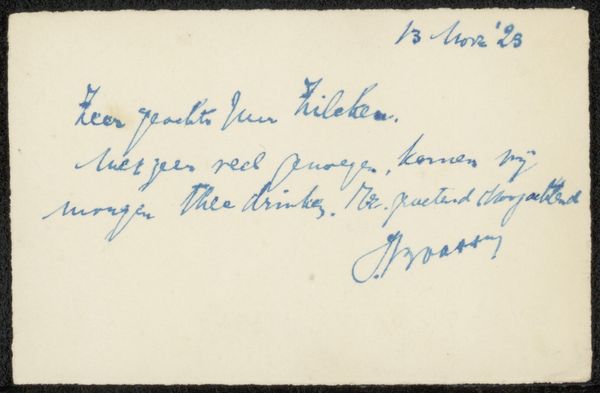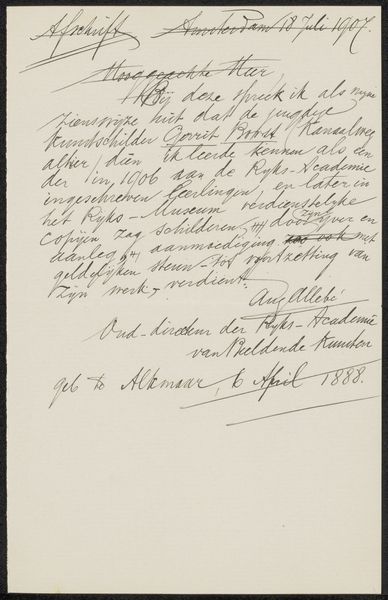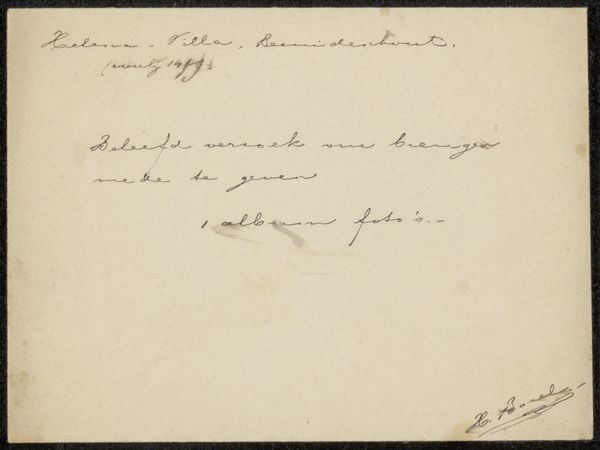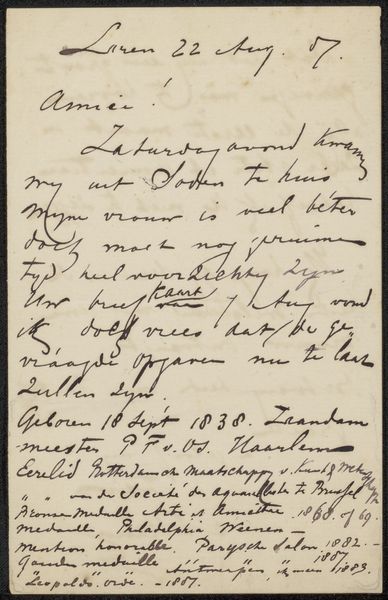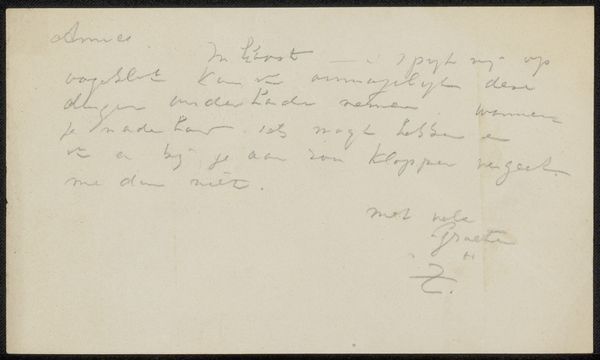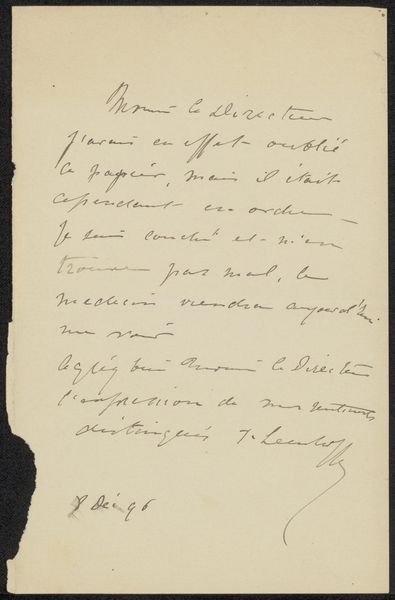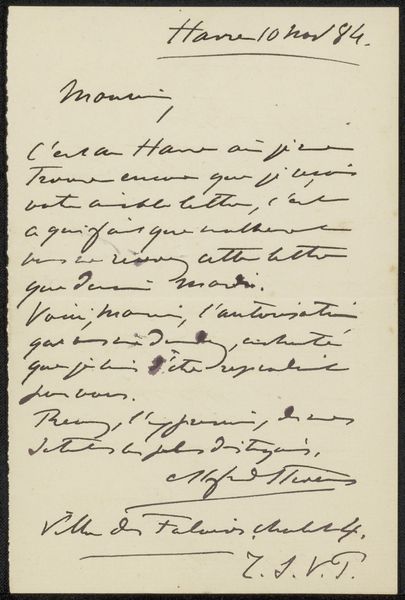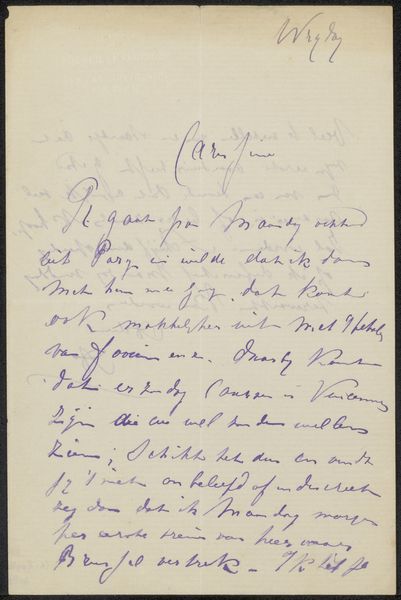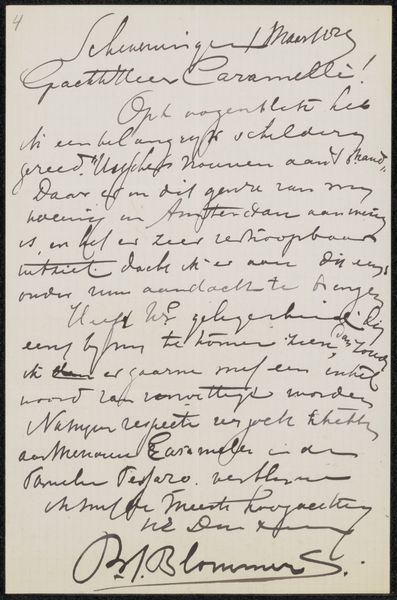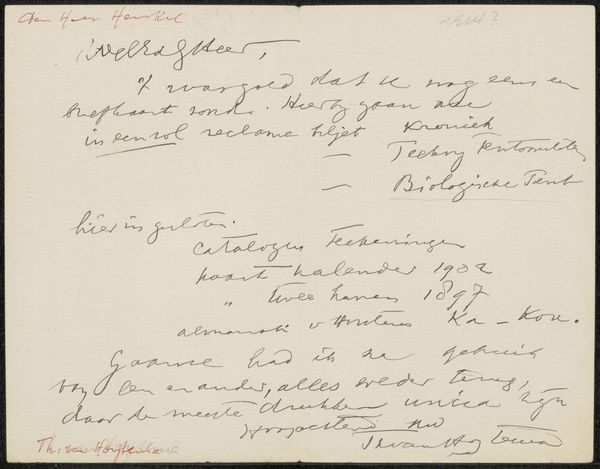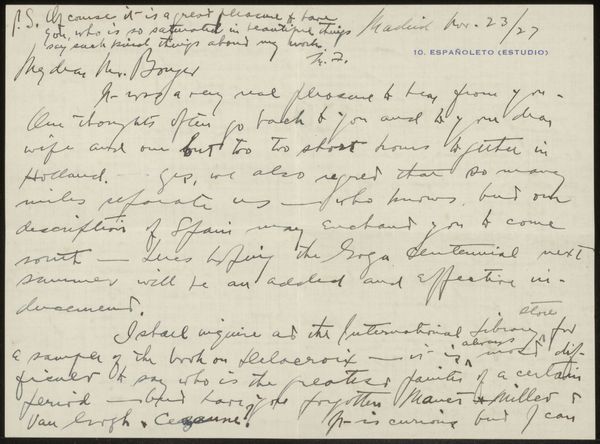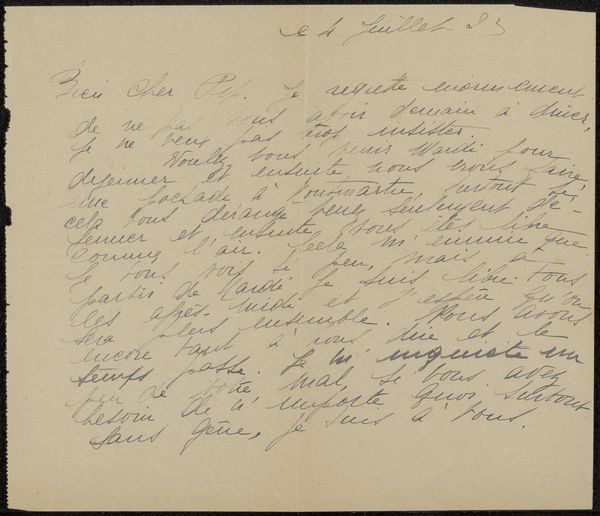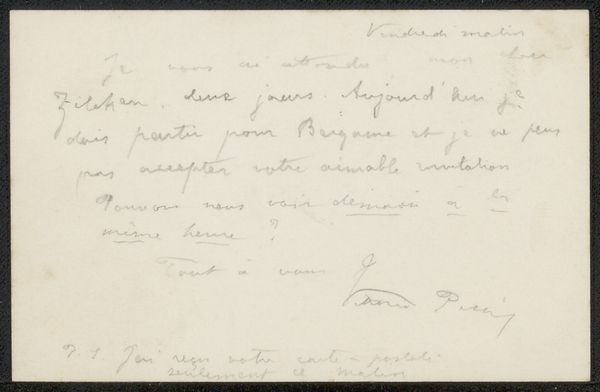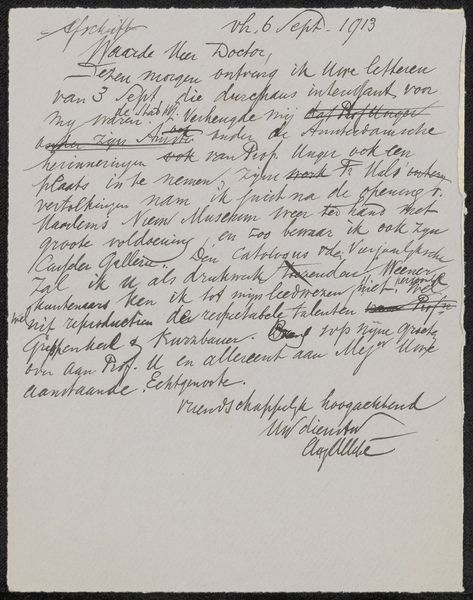
drawing, textile, paper, ink, pen
#
drawing
#
hand-lettering
#
hand drawn type
#
hand lettering
#
textile
#
paper
#
personal sketchbook
#
ink
#
hand-drawn typeface
#
ink drawing experimentation
#
pen-ink sketch
#
pen work
#
sketchbook drawing
#
pen
#
sketchbook art
#
calligraphy
Copyright: Rijks Museum: Open Domain
Editor: We're looking at "Brief aan Philip Zilcken" which translates to "Letter to Philip Zilcken" by Maria Biermé, likely created before 1917. It appears to be ink on paper or perhaps textile, with the appearance of calligraphy. The handwriting feels very personal. What can you tell me about the cultural context of this work? Curator: Looking at this piece, I’m drawn to how it embodies a very specific, almost private act of communication being put on display. Before mass media, handwriting was a powerful tool, carrying nuances beyond the words themselves. Editor: How so? Curator: The act of physically writing, the choice of paper and ink, even the slant of the letters—all these things contributed to the message and its reception. What impact did that have in that society, though? Think about what it meant to receive a handwritten letter versus a printed document. Who held the power in dictating these messages? Editor: I imagine a handwritten note felt more intimate, perhaps conferring a degree of trust, even vulnerability, both in writing and receipt that a standardized font couldn't provide. Curator: Precisely! And consider Biermé’s choice to preserve, even present, what appears to be a draft. Does this act elevate the status of handwriting and individual expression as a form of art itself, or simply provide evidence of correspondence with someone? Editor: It definitely feels like the work is highlighting the artistry in everyday communication. This was interesting to see how history shapes a piece's interpretation. Curator: Indeed. Seeing the handwritten nature really sheds light on the social context, and who was dictating the world at the time.
Comments
No comments
Be the first to comment and join the conversation on the ultimate creative platform.
